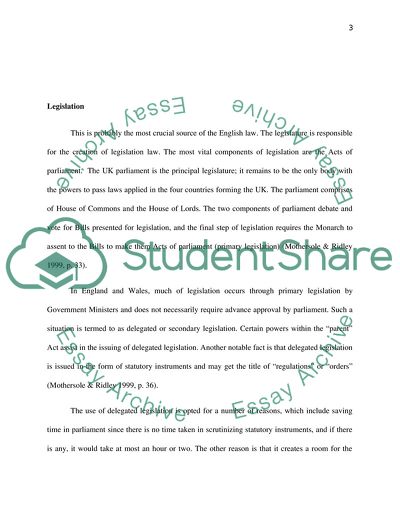Cite this document
(The Different Sources of English Law Coursework Example | Topics and Well Written Essays - 1500 words - 1, n.d.)
The Different Sources of English Law Coursework Example | Topics and Well Written Essays - 1500 words - 1. https://studentshare.org/law/1782896-critically-assess-the-different-sources-of-english-law-to-what-extent-have-external-influences-affected-its-development
The Different Sources of English Law Coursework Example | Topics and Well Written Essays - 1500 words - 1. https://studentshare.org/law/1782896-critically-assess-the-different-sources-of-english-law-to-what-extent-have-external-influences-affected-its-development
(The Different Sources of English Law Coursework Example | Topics and Well Written Essays - 1500 Words - 1)
The Different Sources of English Law Coursework Example | Topics and Well Written Essays - 1500 Words - 1. https://studentshare.org/law/1782896-critically-assess-the-different-sources-of-english-law-to-what-extent-have-external-influences-affected-its-development.
The Different Sources of English Law Coursework Example | Topics and Well Written Essays - 1500 Words - 1. https://studentshare.org/law/1782896-critically-assess-the-different-sources-of-english-law-to-what-extent-have-external-influences-affected-its-development.
“The Different Sources of English Law Coursework Example | Topics and Well Written Essays - 1500 Words - 1”. https://studentshare.org/law/1782896-critically-assess-the-different-sources-of-english-law-to-what-extent-have-external-influences-affected-its-development.


